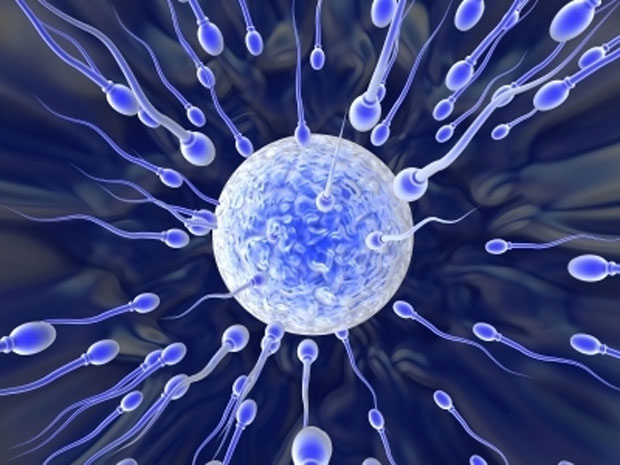Predisposition to Obesity May Be Carried in Sperm

A man's weight may affect the heritable information that is carried in his sperm, according to a small new study from Denmark.
The results may provide a biological clue as to why children of obese fathers may be predisposed to being obese, the researchers said. The information in the sperm cells that varied depending on the weight of the men in the study was "epigenetic" information, meaning it helps to determine how much or how often certain genes become activated. (In contrast, "genetic" information denotes variation in the genes themselves.)
"In our study, we found that obese men had different epigenetic signals in their sperm cells compared to lean men, and these signals were carried on genes important for the development of the brain and the regulation of appetite," said study author Romain Barrès, an associate professor of integrative physiology at the University of Copenhagen.
In the study, the researchers compared epigenetic markers in the sperm of 13 lean men with those of 10 obese men. They found that the sperm of the obese men carried a different epigenetic signature compared to that of the lean men, particularly at genes that are involved in controlling the development and functioning of the brain. [8 Reasons Our Waistlines Are Expanding]
In a separate part of the study, the researchers looked at six obese men who underwent weight-loss surgery, in order to see how the surgery might have changed the hereditary information in their sperm. The researchers found an average of 5,000 structural changes in sperm cell DNA between the time before the men underwent surgery and a year after the surgery. These changes were associated with genetic locations that had been implicated in controlling appetite, the scientists found.
More research is needed to examine what these changes may mean and how they may affect a man's children, but the new data provides early evidence that sperm carries information about a man's health, the researchers said.
"Our research could lead to changing behavior, particularly preconception behavior of the father," Barrès said in a statement. "It's common knowledge that when a woman is pregnant, she should take care of herself— not drink alcohol, stay away from pollutants, etc. — but if the implication of our study holds true, then recommendations should be directed towards men, too."
Sign up for the Live Science daily newsletter now
Get the world’s most fascinating discoveries delivered straight to your inbox.
The researchers said they think there may be evolutionary reasons why hereditary information about a father's weight could benefit his children. This information "could be useful for species to better adapt from one generation to the next," Barrès said.
For example, when food is abundant, it may be beneficial for children to eat more and grow bigger, he said.
"As a species, being able to store as much energy (fat) as possible has long been an advantage to resist famine or infections," Barrès told Live Science. "It [is] only very recent in human history that being obese is a disadvantage, with higher predisposition to cardiometabolic, musculoskeletal diseases, diabetes and cancer."
The new study was published today (Dec. 3) in the journal Cell Metabolism.
Follow Agata Blaszczak-Boxe on Twitter. Follow Live Science @livescience, Facebook & Google+. Originally published on Live Science.









